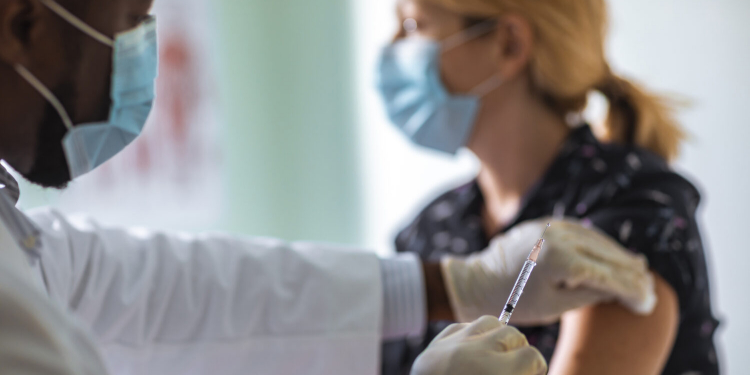British Reporter — The Delta variant of COVID-19 is associated with approximately double the risk of hospitalisation compared with the Alpha variant, according to a new nationwide study, UKRI notes.
Two vaccine doses still provide strong protection against the Delta variant, which was first identified in India, but it may be at a lower level compared with the Alpha variant, the early evidence suggests.
The EAVE II study analysed anonymised linked patient data from 5.4 million people in Scotland to track the pandemic and the vaccine roll out in real time. It is funded by the COVID-19 rapid research response by the Medical Research Council (MRC) and the National Institute for Health Research (NIHR).
The results are published as a peer-reviewed research letter in The Lancet.
Dominant variant
The Delta variant is now the dominant form of COVID-19 cases in Scotland, overtaking the Alpha variant, which was first identified in Kent.
During the period studied, 1 April to 6 June 2021, there were 19,543 community cases and 377 hospitalisations where a specific variant of COVID-19 was confirmed.
Of these totals, 7,723 cases and 134 hospitalisations were found to have the Delta variant. People with underlying conditions were more at risk of being hospitalised, researchers said.
Vaccine protection
Vaccines were found to reduce the risk of being admitted to hospital, but strong protective effects against the Delta variant were not seen until at least 28 days after the first vaccine dose.
In community cases at least two weeks after the second dose, the Pfizer-BioNTech vaccine was found to provide 79% protection against infection from the Delta variant, compared with 92% against the Alpha variant.
For the same scenario, the Oxford-AstraZeneca vaccine offered 60% protection against infection with the Delta variant compared with 73% for the Alpha variant. This lower vaccine effect may reflect that is takes longer to develop immunity with Oxford-AstraZeneca, experts say.
S gene
Delta variant cases were identified through initial PCR testing results, which reveal whether what is known as the S gene is present. Delta variant cases are positive for the S gene whilst Alpha variant cases tend to be S gene negative, according to UKRI
The research team from Universities of Edinburgh and Strathclyde and Public Health Scotland say to increase confidence in these early findings, the research needs to be repeated in other countries and settings.
The team says that because of the observational nature of the study, data about vaccine effectiveness should be interpreted with caution and it is not possible to make a direct comparison between both vaccines.
Two doses offer vaccine effectiveness
Professor Aziz Sheikh, Director of the University of Edinburgh’s Usher Institute and EAVE II study lead, said: Over a matter of weeks the Delta variant has become the dominant strain of SARS-CoV-2 in Scotland. It is unfortunately associated with increased risk of hospitalisation from COVID-19. Whilst possibly not as effective as against other variants, two doses of the Pfizer-BioNTech and Oxford-AstraZeneca vaccines still offer substantial protection against the risk of infection and hospitalisation.
It is therefore really important that, when offered second doses, people take these up both to protect themselves and to reduce household and community transmission.
Dr Jim McMenamin, COVID-19 National Incident Director for Public Health Scotland said: These results provide early encouragement that two doses of either Pfizer-BioNTech or Oxford-AstraZeneca vaccines significantly reduce the risk of infection against both the Alpha or new Delta variants. They also show the vaccines offer protection against the risk of hospitalisation with the new Delta variant. Though no vaccine can be 100% protective, they provide the best protection against COVID-19 and it remains important to get both doses when offered.
Professor Fiona Watt, Executive Chair of MRC, said: The EAVEII study continues to provide rapid insights into real-world vaccine effectiveness – now highlighting the importance of completing vaccination to protect against the Delta variant. This information is crucial for our public health response to COVID-19 and has only been possible through researcher access to securely linked virus variant and healthcare data.
Professor Andrew Morris, Director of Health Data Research UK (HDR UK) and Vice Principal of Data Science at the University of Edinburgh, said: This is another outstanding example of why rapid, safe and secure linkage of health data across entire care journeys, including information from GPs, vaccinations, viral genetics and hospital admissions data, is essential for research that makes a difference to peoples lives. These results will inform decision making internationally.
































Discussion about this post